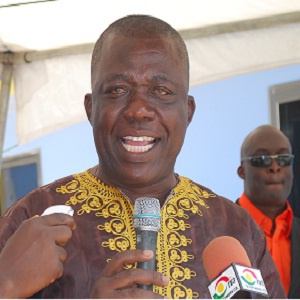Mr John Alexander Ackon, Deputy Minister of Gender, Children and Social Protection (MoGCSP) has stressed the need to intensify efforts to eradicate early and forced child marriages, because of their devastating consequences on society.
Child marriage is defined as any union of two persons, at least one of whom is under 18 years of age.
Ghana is one of the countries with a high prevalence of child marriages, with an estimated one out of four women getting married while still a child, according to the Multiple Indicator Cluster Survey of 2006.
Mr Ackon said although it affects both sexes, the girl-child is more affected.
He was speaking at the inaugural meeting of the Advisory Committee of the Anti-Child Marriage Project, a three-year programme being undertaken by the Ministry in collaboration with the United Nations Children's Fund (UNICEF), Ghana, with funding from the Royal Embassy of the Netherlands.
He noted that although the phenomenon of early and child marriage was a global problem with several laws in place to address it.
He said laws on child marriage, both international and national, all reflect the belief that children do not have the maturity and mental capacity to make decisions on legally binding relationships like marriage.
"Given the physical, sexual, emotional and psychological effects on victims of child marriage, it is evident it contravenes the best interests of the child, which the laws seek to promote,” he said.
Mr Ackon noted that the phenomenon has several causative factors, including level of access to education of girls; adding that girls with access to higher education are less likely to be forced into early marriage than those who do not.
Also, poverty remains a very major factor for child marriage. Women in poor households are more likely to marry early, with some parents marrying their daughters off to reduce the burden on the family, to gain extra income from the bride price.
Where young girls live also informs the prevalence of child marriage in that area: either urban or in rural area
Other factors include strict adherence to traditional and religious doctrines, as well as gender inequality, which he said should be dealt with holistically.
Ms Susan Namondo Ngongi, UNICEF Country Director to Ghana, noted that it would take collective and sustained efforts to deal with the problem.
"These problems are not new problems. They are deeply rooted and will require a lot of work to eradicate poverty and child marriages," she pointed out.
Naa Professor Nabila, President of the National House of Chiefs, said there was no way the issue could be dealt with without the involvement of traditional leaders, especially queen mothers, and urged stakeholders to collaborate properly to stop the menace.
"We are either perpetrators, or we're working to end child marriages," he stated and pledged the support of the National House of Chiefs to the project.
He also called for more sensitization, especially in the three regions of the north, which have the highest prevalence, and for the project to develop culture-specific interventions to address the issue in the various parts of the country.
The Advisory Committee which is expected to provide guidance to the project, and to advise on major project decisions, is made up of about 13 experts and stakeholders in eliminating child marriages.
The members include representatives from the NCCE, MoGCSP, National House of Chiefs, women traditional leaders, the chief imam, and religious bodies, among others.
Regional News of Sunday, 25 January 2015
Source: GNA













